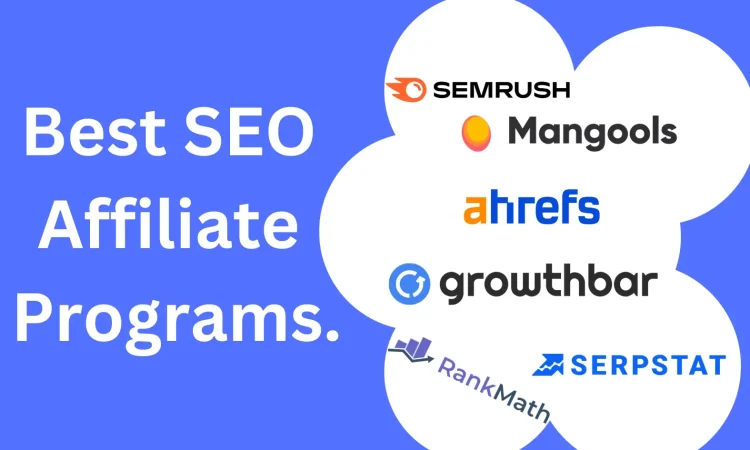Affiliate Marketing Trends for 2025: What You Need to Know to Stay Ahead
Affiliate marketing is continuously evolving, and staying on top of the latest trends is essential for success. As we move toward 2025, new technologies, consumer behavior shifts, and regulatory changes are reshaping the affiliate marketing landscape. In this article, we will explore the most important trends that affiliate marketers need to understand in order to stay competitive and ahead of the curve.
1. The Rise of AI and Automation in Affiliate Marketing
Artificial intelligence (AI) and automation are transforming how affiliate marketers approach their campaigns. In 2025, these technologies will become even more integral, providing marketers with tools to optimize their efforts and improve results. AI-powered tools can analyze data at a scale that was previously unimaginable, helping marketers identify trends, optimize ad placements, and personalize content for their audiences. With AI, marketers can also automate repetitive tasks, freeing up time to focus on strategy and creative aspects.
Automation tools will also improve the efficiency of managing affiliate partnerships. For example, automated reporting systems can provide real-time insights into performance metrics, helping affiliates make data-driven decisions faster. AI can further enhance affiliate marketing by helping with content creation, analyzing user behavior, and suggesting personalized offers to users. As automation becomes more sophisticated, marketers will need to adapt their strategies to incorporate these tools effectively.
2. Increased Focus on Influencer Partnerships
Influencer marketing has been a dominant trend in recent years, and its impact on affiliate marketing will continue to grow in 2025. More brands are realizing the power of working with influencers who have established trust and credibility within their niche. In the coming years, expect to see even more affiliate partnerships between influencers and companies, as influencers use affiliate links to promote products and services. This trend allows influencers to monetize their content while brands gain access to a targeted audience.
Affiliate marketers who leverage influencer partnerships can benefit from greater brand visibility and reach. Influencers bring authenticity to the table, which can drive higher engagement rates and conversions. Additionally, working with micro-influencers—who have smaller but highly engaged followings—will become more popular, as these influencers often have a more personal connection with their audience. Marketers will need to be strategic in selecting influencers who align with their brand values to maximize the impact of these partnerships.
3. The Growth of Video Content in Affiliate Marketing
Video content is already one of the most effective formats for affiliate marketing, and its influence will only grow in 2025. With platforms like YouTube, TikTok, and Instagram dominating the digital landscape, video has become the preferred medium for both consumers and marketers. In 2025, affiliate marketers will increasingly turn to video as a tool to promote products and services, using it to engage their audience in creative ways.
Video allows for a deeper connection with potential customers by showcasing products in action, providing tutorials, or sharing testimonials. Live streaming, in particular, is gaining traction, as it offers real-time interaction with audiences and an opportunity to answer questions and address concerns. With the continued rise of short-form video content, affiliate marketers should explore ways to leverage platforms like TikTok and Instagram Reels to create engaging, snackable content that drives conversions.
4. More Personalized Affiliate Marketing Campaigns
Personalization is key to improving user experience and driving conversions. As consumer expectations rise, affiliate marketers are moving towards hyper-targeted, personalized campaigns in 2025. By leveraging data analytics, marketers can create tailored offers that appeal to individual preferences, behaviors, and interests. This trend is expected to grow as data collection become8s more sophisticated, allowing for deeper insights into what drives customer decisions.
Affiliate marketers will also use personalized email marketing and retargeting ads to stay in front of their audience with relevant offers. This personalized approach not only increases the likelihood of conversions but also fosters stronger relationships with customers. By providing value through personalized recommendations, affiliates can build long-term loyalty with their audience, ensuring repeat sales and higher customer lifetime value.
5. Voice Search and Audio Content Integration
As voice-activated devices like Amazon Echo and Google Home become more prevalent, voice search is poised to play a significant role in affiliate marketing by 2025. Voice search is changing how people find products and services, and marketers must adapt to this shift. Optimizing content for voice search will become a priority, as it presents unique opportunities for affiliates to capture consumers’ attention at different stages of their purchase journey.
Audio content, including podcasts, will also see an increase in usage for affiliate marketing. As more people listen to podcasts, marketers can integrate affiliate links within the content or even collaborate with podcast hosts to promote products. The key to success here will be ensuring the integration feels natural and adds value to the listener. Affiliate marketers will need to understand how to work with audio content creators to reach a more engaged audience while keeping the promotions subtle and aligned with the podcast’s content.
6. Mobile Optimization for Affiliate Marketers
Mobile traffic continues to dominate the digital landscape, and in 2025, mobile optimization will be even more crucial for affiliate marketers. With mobile commerce growing, marketers need to ensure that their websites, landing pages, and affiliate links are optimized for mobile devices. This means fast loading speeds, responsive design, and seamless navigation on smartphones and tablets.
In addition to optimizing websites for mobile, affiliate marketers should focus on mobile-first strategies. For example, using mobile-friendly ad formats like banner ads and pop-ups will help maximize visibility on smartphones. Marketers should also consider mobile-specific channels, such as SMS marketing or in-app advertisements, to capture the growing mobile user base and drive conversions.
7. Sustainability and Ethical Marketing Practices
Sustainability is becoming an increasingly important consideration for consumers, and affiliate marketers must adapt to this shift. In 2025, consumers will continue to gravitate towards brands that prioritize sustainability and ethical business practices. Affiliate marketers who promote eco-friendly, socially responsible products will be better positioned to build trust and loyalty among conscious consumers.
Ethical marketing extends beyond sustainability to include transparent advertising, diversity, and inclusivity. Marketers will need to be more mindful of how they present products and services, ensuring that their campaigns align with the values of their audience. By choosing to work with brands that prioritize ethical practices, affiliate marketers can foster a stronger connection with consumers who care about social and environmental issues.
8. The Impact of Data Privacy and Regulation
Data privacy and regulation will play a larger role in affiliate marketing in 2025. With increasing concerns over data security, governments around the world are implementing stricter regulations to protect consumer privacy. In the European Union, for example, the General Data Protection Regulation (GDPR) has already had a significant impact, and more regions are following suit.
Affiliate marketers will need to stay informed about these changes and ensure compliance with data privacy laws. This could mean revising how data is collected, stored, and used in campaigns. For example, affiliates may need to obtain explicit consent from users before collecting personal data or tracking their behavior. Marketers who prioritize transparency and data protection will gain the trust of their audience and avoid potential legal issues.
9. The Rise of Niche Affiliate Marketing
While general affiliate marketing campaigns can reach a broad audience, niche marketing is gaining popularity due to its ability to target specific, highly engaged groups. In 2025, affiliate marketers will focus more on niche markets, creating specialized content and promoting products that cater to unique interests. This approach allows marketers to stand out in a crowded market and build a loyal, targeted following.
Niche affiliate marketing offers the opportunity for higher conversion rates, as marketers can tailor their messaging to the needs and desires of a smaller, more specific audience. Additionally, focusing on niche markets can reduce competition, making it easier for affiliates to establish themselves as authorities in their chosen area. By understanding their audience’s pain points and providing tailored solutions, affiliate marketers can build more effective campaigns that drive meaningful results.
10. Cross-Channel Affiliate Marketing Strategies
In 2025, affiliate marketers will increasingly adopt cross-channel strategies, integrating multiple platforms to create a seamless customer experience. Consumers today engage with brands across a variety of channels, from social media to email, blogs, and podcasts. To stay ahead, affiliate marketers must develop cohesive campaigns that reach customers wherever they are, delivering a consistent message across touchpoints.
A cross-channel approach allows marketers to engage users at different stages of the buying journey, whether they are discovering a product on social media or making a purchase through an email link. Marketers can use different channels to complement each other, reinforcing their messaging and improving the chances of conversion. By utilizing multiple platforms, affiliate marketers can expand their reach and build stronger relationships with potential customers.
11. The Importance of Transparent Reporting
Transparency in reporting is becoming a major trend in affiliate marketing, as both advertisers and consumers demand more accountability. In 2025, affiliate marketers will need to provide clear, honest, and detailed performance reports. This trend is driven by the increasing desire for data-driven decision-making and the need to prove the value of affiliate partnerships.
Affiliate marketers who are transparent about their performance metrics, including clicks, conversions, and commissions, will build trust with advertisers and their audience. Transparency also means being clear about affiliate relationships and any compensation received for promoting products. This honesty helps build credibility, as consumers are more likely to trust affiliates who are upfront about their intentions and the value they provide.
12. Subscription-Based Affiliate Models
Subscription-based services are booming, and affiliate marketers are tapping into this trend by promoting subscription-based products and services. In 2025, more affiliate marketers will embrace recurring commission models, where they earn commissions not only for initial sign-ups but also for ongoing payments made by subscribers. This creates a more sustainable income stream, as affiliates can continue to earn from customers who stay subscribed over time.
Subscription-based affiliate models offer the benefit of long-term revenue potential, as affiliates can continue to generate commissions as long as customers remain subscribed. Additionally, many subscription services offer free trials or discounted rates for new users, making it easier for affiliates to convince prospects to give them a try. By promoting high-quality subscription services, affiliate marketers can build consistent and reliable income sources.
13. The Integration of Augmented Reality (AR)
Augmented reality (AR) is gaining traction across various industries, and affiliate marketing is no exception. In 2025, AR will be a key tool for marketers looking to engage users in more immersive and interactive ways. AR allows consumers to visualize products in their environment before making a purchase decision, which can enhance the customer experience and drive higher conversion rates.
Affiliate marketers who incorporate AR into their campaigns will have the advantage of offering a more engaging and personalized shopping experience. For example, affiliates can use AR to showcase how a piece of furniture looks in a customer’s living room or how a makeup product looks on their skin. By integrating AR into affiliate campaigns, marketers can bridge the gap between online and offline shopping experiences, making it easier for consumers to make informed purchase decisions.
14. Diversification of Payment Models
In 2025, affiliate marketers will see more diverse payment models in the industry. Traditional pay-per-click (PPC) and pay-per-sale (PPS) models will continue to be popular, but performance-based models like pay-per-lead (PPL) and cost-per-action (CPA) will gain more traction. This diversification allows affiliates to choose payment structures that align with their strengths and target audience.
The evolution of payment models also reflects the growing sophistication of affiliate marketing campaigns. By diversifying payment models, marketers can ensure they are compensated fairly for the value they provide. This flexibility benefits both affiliates and advertisers, creating a more dynamic and sustainable ecosystem. Marketers who adapt to these new payment structures will be able to maximize their earnings potential and stay competitive in the changing affiliate marketing landscape.
15. The Impact of Blockchain Technology on Affiliate Marketing
Blockchain technology is starting to make its way into affiliate marketing, and by 2025, it will play a larger role. Blockchain offers enhanced security, transparency, and efficiency, which can help solve some of the industry’s longstanding issues, such as fraud and payment delays. For affiliates and advertisers, blockchain can provide a more secure and reliable way to track commissions and ensure that transactions are fair.
Blockchain also has the potential to eliminate intermediaries in the affiliate marketing process, streamlining payment and reporting systems. This could result in faster, more transparent transactions, improving the overall efficiency of affiliate marketing campaigns. As blockchain technology becomes more widely adopted, affiliate marketers will need to stay informed about its potential applications and incorporate it into their strategies for improved performance.
Conclusion
The affiliate marketing landscape is changing rapidly, and staying ahead of the trends is essential for long-term success. By embracing technologies like AI, automation, and blockchain, and focusing on emerging areas such as influencer partnerships, voice search, and mobile optimization, affiliate marketers can position themselves for success in 2025 and beyond. Adapting to these trends will allow you to build more effective campaigns, engage your audience, and drive higher conversions. The future of affiliate marketing is bright, and those who embrace these changes will lead the way.






